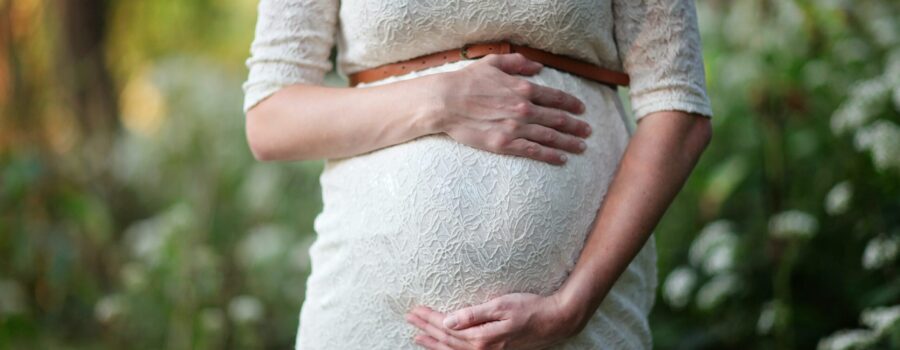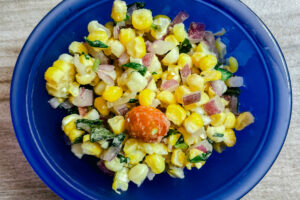The emergence of the COVID-19 vaccine is both promising and exciting. However, the limited data on the vaccine’s impact on women in their childbearing years is leaving many wondering if they should get it (and when), or wait until more data is available.
The World Health Organization (WHO) recommends that pregnant and breastfeeding women avoid getting the vaccine until more research is done. The one exception to this is if the pregnant or breastfeeding woman has “an unavoidable risk high of exposure.” Breastfeeding women who get the vaccine are not recommended to stop breastfeeding.
WHO also recommends that women who get the vaccine wait to become pregnant until at least 2-3 months after their final dose. Again, this is because of the lack of research on the vaccine’s impact on human fertility.
Our U.S. government is leaving the decision up to the woman.
Here are the current recommendations for women who are trying to conceive, are currently pregnant or are breastfeeding.
The CDC and The American College of Obstetricians and Gynecologists (ACOG) both state the following (summarized from their websites):
- Vaccine trials have not been conducted on pregnant or breastfeeding women (they are planned, however, and we will hopefully have more data by the time the vaccine becomes more readily available to the masses)
- Trials conducted on animals have indicated no adverse outcomes related to fertility and/or pregnancy
- Previous experience with similar types of vaccines would indicate that there is little to no risk of receiving the COVID-19 vaccine during any of the states mentioned above
- The vaccine does not contain the live virus, meaning there is no risk of you or your baby contracting the virus from the vaccine
Continue reading for more info specifically for pregnant or breastfeeding women:
Pregnant Women
It is recommended that you have a discussion with your medical provider about whether (or when) you should get the vaccine.
For example, if you have a low-risk pregnancy, work from home/stay home, have no underlying conditions and practice social distancing and mask-wearing, you may decide you wish to defer the vaccine.
If you are pregnant and a frontline healthcare worker, working on-site, have an underlying condition and/or a high-risk pregnancy, you may decide to get the vaccine while pregnant.
There are many other scenarios as well and your medical provider can help you make the one that’s best for you and your baby.
The mRNA vaccine does not alter DNA or cause genetic changes. In addition, it is thought that there is little risk of the vaccination crossing the placenta, however, until further studies can be done, this cannot be confirmed.
There is potentially a benefit from receiving the vaccine, which is that the antibodies created in your body in response to the vaccine would cross the placenta and also protect your unborn baby. Again, we will hopefully have better data to confirm this in the coming months!
Breastfeeding Women
Similar to pregnancy, it’s advised to discuss the potential benefits and risks of getting the vaccine as it relates to breastfeeding and impact on your child with your medical provider.
Based on data from other similar vaccines, it is believed that the COVID-19 vaccine poses little risk to lactation outcomes and/or the nursing child. It is also believed that women do not need to stop breastfeeding if they get the vaccine. But, unfortunately, until more research is done, we do not have definite answers on the potential risks or outcomes.
Here is a helpful excerpt from the Academy of Breastfeeding Medicine vaccine statement:
“These conversations are challenging, because the Pfizer/BioNtech vaccine trial excluded lactating individuals. As a result, there are no clinical data regarding the safety of this vaccine in nursing mothers. However, there is little biological plausibility that the vaccine will cause harm, and antibodies to SARS-CoV-2 in milk may protect the breastfeeding child…During lactation, it is unlikely that the vaccine lipid would enter the blood stream and reach breast tissue. If it does, it is even less likely that either the intact nanoparticle or mRNA transfer into milk. In the unlikely event that mRNA is present in milk, it would be expected to be digested by the child and would be unlikely to have any biological effects.”
Conclusion:
The decision to get the vaccine is ultimately up to you. You should consider your specific environment, exposure risks and personal health when deciding if or when you’ll receive the vaccine.
This information is not intended to be medical advice. Sources for the information shared have been provided in this article. You should consult your medical provider if you are unsure on whether you should get the COVID-19 vaccine.







